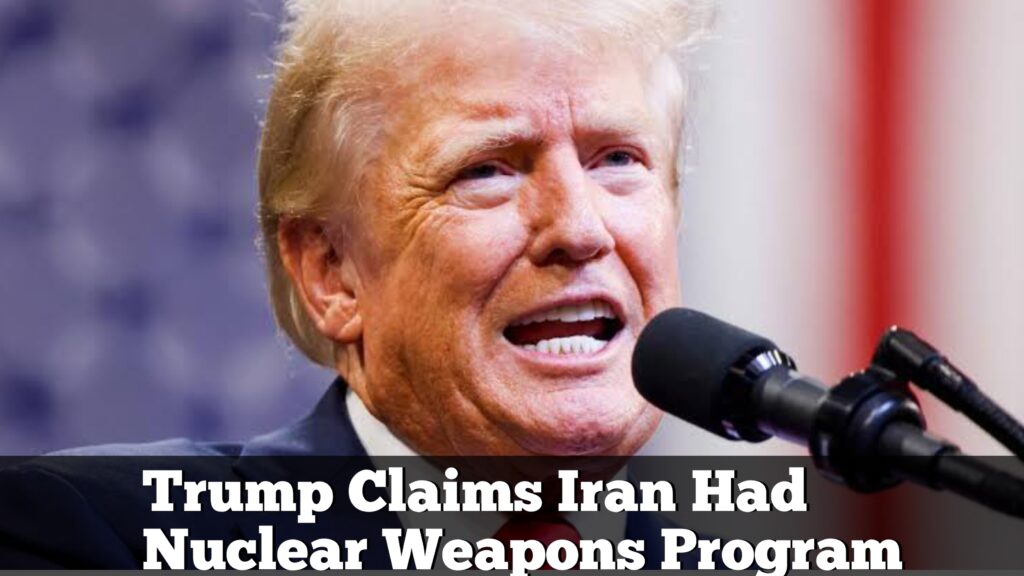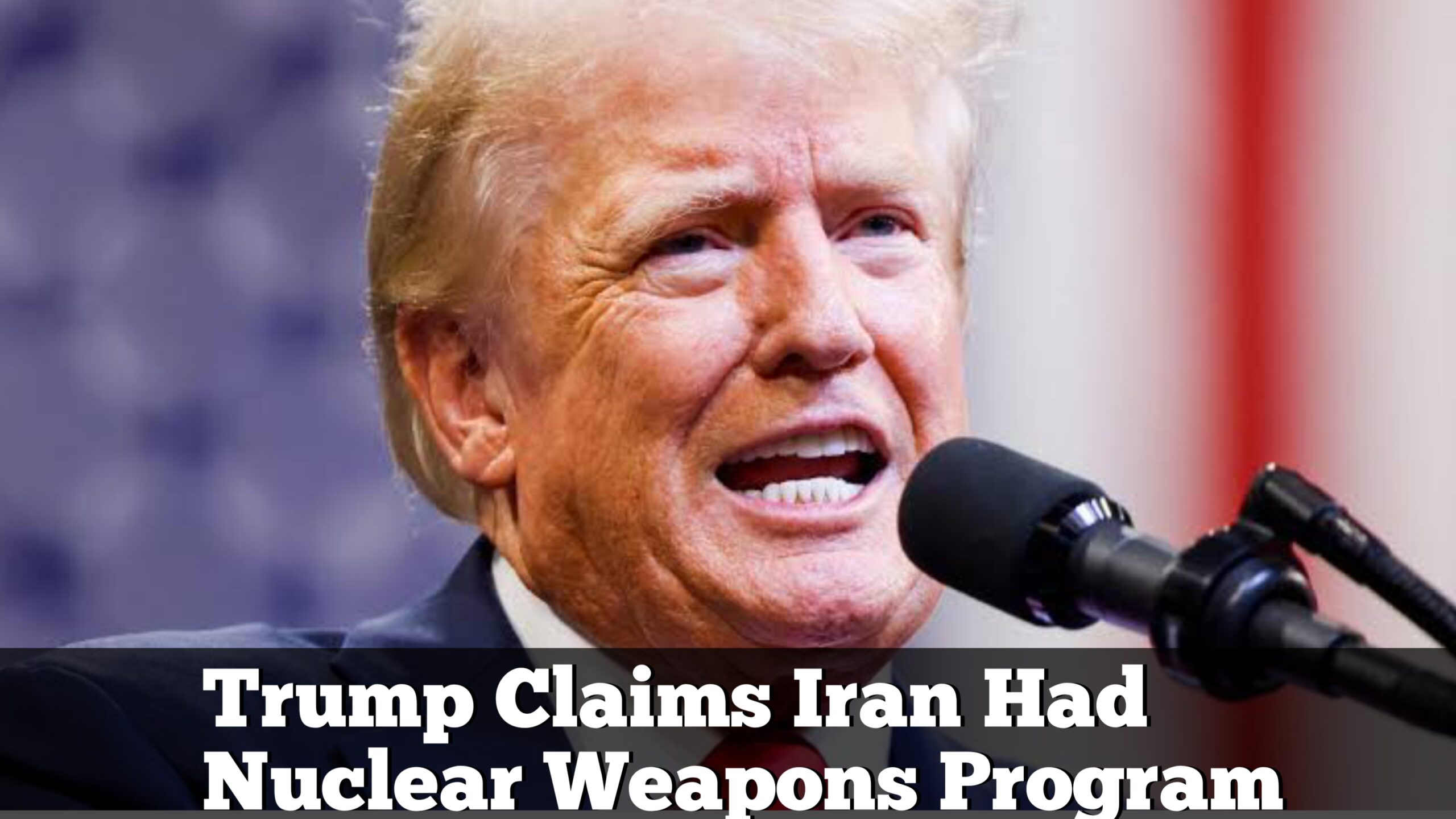In a statement that’s reignited international debate, Trump claims Iran had nuclear weapons program, despite long-standing assessments from U.S. intelligence agencies that say otherwise. Speaking to members of Congress in a closed-door session, the former president insisted that Iran secretly continued developing nuclear weapons — a claim that contradicts years of official intelligence reports and global findings.
This latest declaration adds a controversial layer to U.S. foreign policy discussions and raises questions about the motives behind reintroducing the narrative that Tehran pursued nuclear weapons under the radar.
Table of Contents
Trump Claims Iran Had Nuclear Weapons Program Despite U.S. Intelligence Consensus
The assertion that Trump claims Iran had nuclear weapons program has drawn immediate reactions from within U.S. intelligence circles. Since 2007, the National Intelligence Estimate has stated that Iran halted its nuclear weapons program in 2003. These findings have been consistently reaffirmed over the years, including during Trump’s own presidency.

However, Trump reportedly told congressional leaders that Iran maintained hidden operations and used peaceful energy programs as a front for weapons development. He argued that Iran’s concealment of nuclear activities proves that it cannot be trusted with any form of uranium enrichment — peaceful or not.
His remarks clash not only with U.S. spy agencies but also with international organizations such as the IAEA, which has repeatedly said there is no current evidence of Iran actively pursuing a nuclear bomb.
Global Reactions After Trump Claims Iran Had Nuclear Weapons Program
Unsurprisingly, the global community has had strong reactions to the fact that Trump claims Iran had nuclear weapons program. European diplomats involved in past negotiations with Iran have expressed concern that the former president’s rhetoric could jeopardize future peace talks. Many view the statement as politically motivated, especially given Trump’s history of withdrawing from the 2015 Iran nuclear deal.
Iran, for its part, dismissed the claim as “baseless and recycled propaganda.” Iranian officials said Trump’s comments are part of a pattern of misinformation intended to justify failed U.S. policies. Meanwhile, Israeli officials supported the statement, with some claiming it validates their long-standing belief that Iran has never fully abandoned its weapons ambitions.
Despite differing opinions, one thing remains clear: the former president’s comment has reignited tensions and could influence upcoming diplomatic efforts, especially as global powers consider reengaging with Tehran over its nuclear commitments.
In the U.S., reactions on Capitol Hill have been mixed. While some Republican lawmakers supported Trump’s statement and echoed his concerns about Iran’s honesty, many Democrats and independent analysts criticized the former president for disregarding the findings of the intelligence community. Critics argue that making such claims without providing concrete evidence can damage America’s credibility and complicate future negotiations with global partners.
Moreover, national security experts warn that repeating unverified claims — especially when Trump claims Iran had nuclear weapons program — could undermine the authority of U.S. intelligence agencies. If political leaders publicly dismiss professional assessments, it may erode trust in institutions meant to provide unbiased national security information. This tension between politics and intelligence could affect not just Iran policy, but how future administrations handle classified evaluations and global threats.
Conclusion
Now that Trump claims Iran had nuclear weapons program, the gap between political messaging and intelligence findings is once again in focus. While no new evidence has been presented to support the claim, its impact on public opinion and international policy could be significant.
Unless verified by current intelligence agencies or independent inspections, the statement stands as a highly debated assertion. Whether it reshapes future U.S. engagement with Iran — or simply sparks another political controversy — remains to be seen.
Do Follow for daily news.
For more details click here.
